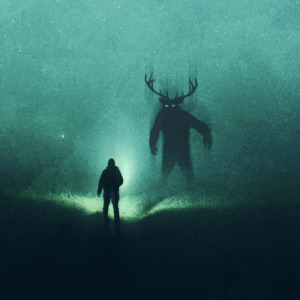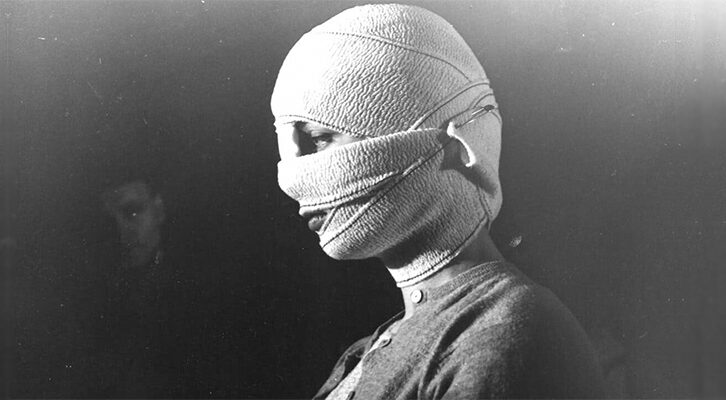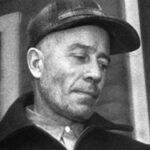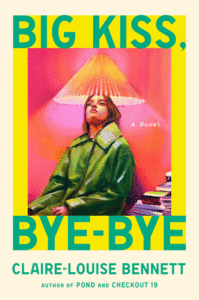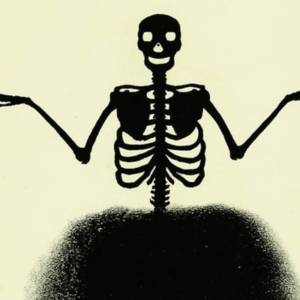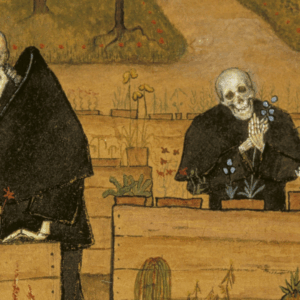
10 Short Stories with Great Dialogue That Aren’t “Hills Like White Elephants”
Do You Believe in Life After Hemingway?
Before you get excited: I have no problem with “Hills Like White Elephants.” In this classic story, Ernest Hemingway demonstrates a masterful, subtle use of dialogue—so much so that it has become, if not a totally clichéd, then at least a ubiquitous text in creative writing classrooms. I myself encountered it at least four times by the time I got to grad school—where I proceeded to teach it to my own Introduction to Creative Writing class. It’s the circle of life. This is only to say that I’m not immune—but I also know there are plenty of other stories with strong dialogue out there, and as another school year (such as it is, in 2021) gets going, they’re probably worth a look too. Just for fun, you know?
So I asked the Literary Hub staff to suggest some of their other favorite short stories that do cool things with dialogue, and I’ve collected a few of them here. Obviously this list is not exhaustive—among other things, we also shied away from some other tried-and-true dialogue-heavy classics, like “The Dead” and “What We Talk About When We Talk About Love,” and “Steady Hands at Seattle General”—and of course these stories are mostly not doing the same thing as “Hills Like White Elephants,” but they’re all doing something interesting. Just in case you want to mix it up a little this year.
*
Sam Lipsyte, “The Dungeon Master,” from The Fun Parts
Sample Dialogue:
The Dungeon Master has detention. We wait at his house by the county road. The Dungeon Master’s little brother Marco puts out corn chips and orange soda.
Marco is a paladin. He fights for the glory of Christ. Marco has been many paladins since winter break. They are all named Valentine, and the Dungeon Master makes certain they die with the least possible amount of dignity.
It’s painful enough when he rolls the dice, announces that a drunken orc has unspooled some Valentine’s guts for sport. Worse are the silly accidents. One Valentine tripped on a floor plank and cracked his head on a mead bucket. He died of trauma in the stable.
“Take it!” the Dungeon Master said that time. Spit sprayed over the top of his laminated screen. “Eat your fate,” he said. “Your thread just got the snippo!”
The Dungeon Master has a secret language that we don’t quite understand. They say he’s been treated for it.
Whenever the Dungeon Master kills another Valentine, Marco runs off and cries to their father. Dr. Varelli nudges his son back into the study, sticks his bushy head in the door, says, “Play nice, my beautiful puppies.”
“Father,” the Dungeon Master will say, “stay the fuck out of my mind realm.”
“I honor your wish, my beauty.”
Dr. Varelli says things like that. It’s not a secret language, just an embarrassing one. Maybe that’s why his wife left him, left Marco and the Dungeon Master, too. It’s not a decent reason to leave, but as the Dungeon Master hopes to teach us, the world is not a decent place to live.
*
Danielle Evans, “Virgins,” from Before You Suffocate Your Own Fool Self
Sample Dialogue:
“Look what Eddie gave me,” said Cindy, all friendly. She pulled a pink teddy bear out of her purse and squeezed its belly. It sang “You Are My Sunshine” in a vibrating robot voice.
“That’s nice,” said Jasmine, her voice so high that she sounded almost like the teddy bear. Cindy smiled and walked off with Eddie, swinging her hips back and forth.
“I don’t have a teddy bear neither,” said Eddie’s friend Tre, putting an arm around Jasmine. She pushed him off. Tre was the kind of boy my mother would have said to stay away from, but she said to stay away from all men.
“C’mon, Jasmine,” Tre said. “I lost my teddy bear, can I sleep with you tonight?”
Jasmine looked at Tre like he was stupid. Michael put an arm around each of our shoulders and kissed us both on the cheek, me first, then Jasmine.
“You know these are my girls,” he said to Tre. “Leave ’em alone.”
His friends mostly left me alone anyway, because they knew I wasn’t good for anything but a little kissing. But I was glad he’d included me. Michael nodded good-bye as he and his friends walked toward their movie. Eddie and Cindy stayed there, kissing, like that’s what they had paid admission for. I grabbed Jasmine’s hand and pulled her toward the ticket counter.
“That’s nasty,” I said. “She looks nasty all up on him in public like that.”
“No one ever bought me a singing teddy bear,” said Jasmine. “Probably no one ever will buy me a singing teddy bear.”
“I’ll buy you a singing teddy bear, stupid,” I said.
“Shut up,” she said. She’d been sucking on her bottom lip so hard she’d sucked the lipstick off it, and her lips were two different colors. “Don’t you ever want to matter to somebody?”
“I matter to you. And Michael.”
Jasmine clicked her tongue. “Say Michael had to shoot either you or that Italian chick who’s letting him hit it right now. Who do you think he would save?”
“Why does he have to shoot somebody?” I said.
“He just does.”
“Well, he’d save me then. She’s just a girl who’s fucking him.”
“And you’re just a girl who isn’t,” Jasmine said. “That’s your problem, Erica. You don’t understand adult relationships.”
“Where are there adults?” I asked, turning in circles with my hand to my forehead like a sea captain looking for land.
“You’re right,” she said. “I’m tired of these little boys. Next weekend we’re going to the city. We’re gonna find some real niggas who know how to treat us.”
That was not the idea I meant for Jasmine to have.
*
Ottessa Moshfegh, “The Beach Boy,” from Homesick for Another World
Sample Dialogue:
The friends wanted to know what the prostitutes had looked like, how they’d dressed, what they’d said. They wanted details.
“They looked like normal people,” Marcia said, shrugging. “You know, just young, poor people, locals. But they were very complimentary. They kept saying, ‘Hello, nice people. Massage? Nice massage for nice people?’ ”
“Little did they know!” John joked, furrowing his eyebrows like a maniac. The friends laughed.
“We’d read about it in the guidebook,” Marcia said. “You’re not supposed to acknowledge them at all. You don’t even look them in the eye. If you do, they’ll never leave you alone. The beach boys. The male prostitutes, I mean. It’s sad,” she added. “Tragic. And, really, one wonders how anybody can starve in a place like that. There was food everywhere. Fruit on every tree. I just don’t understand it. And the city was rife with garbage. Rife!” she proclaimed. She put down her fork. “Wouldn’t you say, hon?”
“I wouldn’t say ‘rife,’ ” John answered, wiping the corners of his mouth with his cloth napkin. “Fragrant, more like.”
The waiter collected the unfinished plates of pasta, then returned and took their orders of cheesecake and pie and decaffeinated coffee. John was quiet. He scrolled through photos on his cell phone, looking for a picture he’d taken of a monkey seated on the head of a Virgin Mary statue. The statue was painted in bright colors, and its nose was chipped, showing the white, chalky plaster under the paint. The monkey was black and skinny, with wide-spaced, neurotic eyes. Its tail curled under Mary’s chin. John turned the screen of his phone toward the table.
“This little guy,” he said.
“Aw!” the friends cried. They wanted to know, “Were the monkeys feral? Were they smelly? Are the people Catholic? Are they all very religious there?”
“Catholic,” Marcia said, nodding. “And the monkeys were everywhere. Cute but very sneaky. One of them stole John’s pen right out of his pocket.” She rattled off whatever facts she could remember from the nature tour they’d taken. “I think there are laws about eating the monkeys. I’m not so sure. They all spoke English,” she repeated, “but sometimes it was hard to understand them. The guides, I mean, not the monkeys.” She chuckled.
“The monkeys spoke Russian, naturally,” John said, and put away his phone.
*
Sarah Gerard, “The Killer,” from Guernica
Sample Dialogue:
They paid the bill and left, gathering on the sidewalk.
Nathan said to them, “We live down the beach. Come over.”
Amy tried to decline. Benjamin held her by the elbow. She allowed him to lead her, and by the time they reached the sand behind the Pelican, she’d managed to free herself, and catch up with Carol.
They walked the waterline.
“There is another option if you don’t want to kill them yourself,” Carol told her. Then, turning to Nathan: “We can put them in touch with Chance.”
Nathan fell into step with them. He draped an arm around his wife’s waist.
“Is Chance an exterminator?” said Amy.
“I hesitate to tell you more about our relationship,” Nathan joked. “I don’t talk God or politics in mixed company.”
“I’m a registered Democrat,” said Benjamin.
“He comes out and shoots the iguanas, then disposes of the carcasses,” said Carol. “He charges a reasonable fee.”
Nathan smiled.
“He actually became somewhat notorious when he posted some pictures of one of his hunts on Facebook recently,” Carol continued. “He can guarantee up to one hundred iguanas in a single hunt. He had them all laid out in rows with their legs bound, and huge plastic bins of dead lizards, rooms and hallways full of them. Then these happy white men in t-shirts with the sleeves cut off, posing.”
“You can imagine,” said Nathan.
“Thousands of shares. People calling him a murderer.”
“He’s doing our community a service, really.”
They climbed a narrow path worn into the sea grass. It led to the screened-in pool of a stone lanai furnished in rattan. Nathan went behind the bar with his phone to his ear. He fixed their drinks out of earshot. Carol invited them to sit on a loveseat. She offered them each a cigarette. They declined.
“I suppose you know too much about the consequences of smoking.” She lit the cigarette and drew out the motion of removing it from her mouth. A slip of smoke hovered between her lips. “My father was a pack-a-day smoker until he died at ninety-two. I figure I’m immune.”
“I’m not sure that would stand up to peer review,” said Benjamin.
“You’re right. Too emotional.”
*
Kevin Barry, “Fjord of Killary,” from Dark Lies the Island
Sample Dialogue:
So I bought an old hotel on the fjord of Killary. It was set hard by the harbor wall, with Mweelrea Mountain across the water, and disgracefully gray skies above. It rained two hundred and eighty-seven days of the year, and the locals were given to magnificent mood swings. On the night in question, the rain was particularly violent—it came down like handfuls of nails flung hard and fast by a seriously riled sky god. I was at this point eight months in the place and about convinced that it would be the death of me.
“It’s end-of-the-fucking-world stuff out there,” I said.
The chorus of locals in the hotel’s lounge bar, as always, ignored me. I was a fretful blow-in, by their mark, and simply not cut out for tough, gnarly, West of Ireland living. They were listening, instead, to John Murphy, our alcoholic funeral director.
“I’ll bury anythin’ that fuckin’ moves,” he said.
“Bastards, suicides, tinkers,” he said.
“I couldn’t give a fuckin’ monkey’s,” he said.
. . .
Behind the bar: the Guinness tap, the Smithwicks tap, the lager taps, the line of optics, the neatly stacked rows of glasses, and a high stool that sat by a wee slit of window that had a view across the water toward Mweelrea. The iodine tang of kelp hung in the air always, and put me in mind of embalming fluid. Bill Knott looked vaguely from his Bushmills toward the water.
“Highish, all right,” he said. “But now what’d we be talkin’ about for Belmullet, would you say? Off a slow road?”
The primary interest of these people’s lives, it often seemed, was how far one place was from another, and how long it might take to complete the journey, given the state of the roads. Bill had been in haulage as a young man and considered himself expert.
“I don’t know, Bill,” I said.
“Would we say an hour twenty if you weren’t tailbacked out of Newport?”
“I said I really don’t fucking well know, Bill.”
“There are those’ll say you’d do it in an hour.” He sipped, delicately. “But you’d want to be grease fuckin’ lightnin’ coming up from Westport direction, wouldn’t you?”
“We could be swimming it yet, Bill.”
*
Toni Cade Bambara, “The Lesson,” from Gorilla, My Love
Sample Dialogue:
“Will you look at this sailboat, please,” say Flyboy, cuttin her off and pointin to the thing like it was his. So once again we tumble all over each other to gaze at this magnificent thing in the toy store which is just big enough to maybe sail two kittens across the pond if you strap them to the posts tight. We all start reciting the price tag like we in assembly. “Hand-crafted sailboat of fiberglass at one thousand one hundred ninety-five dollars.”
“Unbelievable,” I hear myself say and am really stunned. I read it again for myself just in case the group recitation put me in a trance. Same thing. For some reason this pisses me off. We look at Miss Moore and she lookin at us, waiting for I dunno what.
“Who’d pay all that when you can buy a sailboat set for a quarter at Pop’s, a tube of glue for a dime, and a ball of string for eight cents? It must have a motor and a whole lot else besides,” I say. “My sailboat cost me about fifty cents.”
“But will it take water?” say Mercedes with her smart ass.
“Took mine to Alley Pond Park once,” say Flyboy. “String broke. Lost it. Pity.”
“Sailed mine in Central Park and it keeled over and sank. Had to ask my father for another dollar.”
“And you got the strap,” laugh Big Butt. “The jerk didn’t even have a string on it. My old man wailed on his behind.”
Little Q.T. was staring hard at the sailboat and you could see he wanted it bad. But he too little and somebody’d just take it from him. So what the hell.
“This boat for kids, Miss Moore?”
“Parents silly to buy something like that just to get all broke up,” say Rosie Giraffe.
“That much money it should last forever,” I figure.
“My father’d buy it for me if I wanted it.”
“Your father, my ass,” say Rosie Giraffe getting a chance to finally push Mercedes.
“Must be rich people shop here,” say Q.T.
“You are a very bright boy,” say Flyboy. “What was your first clue?” And he rap him on the head with the back of his knuckles, since Q.T. the only one he could get away with. Though Q.T. liable to come up behind you years later and get his licks in when you half expect it.
*
Ali Smith, “The Child,” from The First Person and Other Stories
Sample Dialogue:
You’re a really rubbish driver, a voice said from the back of the car. I could do better than that, and I can’t even drive. Are you for instance representative of all women drivers, or is it just you among all women who’s so rubbish at driving?
It was the child speaking. But it spoke with so surprisingly charming a little voice that it made me want to laugh, a voice as young and clear as a series of ringing bells arranged into a pretty melody. It said the complicated words, representative and for instance, with an innocence that sounded ancient, centuries old, and at the same time as if it had only just discovered their meaning and was trying out their usage and I was privileged to be present when it did.
I slewed the car over to the side of the motorway, switched the engine off and leaned over the front seat into the back. The child still lay there helpless, rolled up in the tartan blanket, held in place by it inside the seatbelt. It didn’t look old enough to be able to speak. It looked barely a year old.
It’s terrible. Asylum seekers come here and take all our jobs and all our benefits, it said preternaturally, sweetly. They should all be sent back to where they come from.
There was a slight endearing lisp on the “s” sounds in the words asylum and seekers and jobs and benefits and sent.
What? I said.
Can’t you hear? Cloth in your ears? it said. The real terrorists are people who aren’t properly English. They will sneak into football stadiums and blow up innocent Christian people supporting innocent English teams.
The words slipped out of its ruby-red mouth. I could just see the glint of its little coming-through teeth.
It said: The pound is our rightful heritage. We deserve our heritage. Women shouldn’t work if they’re going to have babies. Women shouldn’t work at all. It’s not the natural order of things. And as for gay weddings. Don’t make me laugh.
Then it laughed, blondly, beautifully, as if only for me. Its big blue eyes were open and looking straight up at me as if I were the most delightful thing it had ever seen.
I was enchanted. I laughed back.
*
ZZ Packer, “The Ant of the Self,” from Drinking Coffee Elsewhere
Sample Dialogue:
My father just got a DUI—again—though that didn’t stop him from asking for the keys. When I didn’t give them up, he sighed and shook his head as though I withheld keys from him daily. “C’mon, Spurge,” he’d said. “The pigs aren’t even looking.”
He’s the only person I know who still calls cops “pigs,” a holdover from what he refers to as his Black Panther days, when “the brothers” raked their globes of hair with black-fisted Afro picks, then left them stuck there like javelins. When, as he tells it, he and Huey P. Newton would meet in basements and wear leather jackets and stick it to whitey. Having given me investment advice, he now watches the world outside the Honda a little too jubilantly. I take the curve around the city, past the backsides of chain restaurants and malls, office parks and the shitty Louisville zoo.
“That’s your future,” he says winding down from his rant. “Sound investments.”
“Maybe you should ask the pigs for your bail money back,” I say. “We could invest that.”
. . .
“You keep getting money from debate, we could invest.”
When most people talk about investing, they mean stocks or bonds or mutual funds. What my father means is his friend Splo’s cockfighting arena, or some dude who goes door to door selling exercise equipment that does all the exercise for you. He’d invested in a woman who tried selling African cichlids to pet shops, but all she’d done was dye ordinary goldfish so they looked tropical. “Didn’t you just win some cash?” he asks. “From debate?”
“Bail,” I say. “I used it to pay your bail.”
He’s quiet for a while. I wait for him to stumble out a thanks. I wait for him to promise to pay me back with money he knows he’ll never have. Finally he sighs and says, “Most investors buy low and sell high. Know why they do that?” With my father there are not only trick questions, but trick answers. Before I can respond, I hear his voice, loud and naked. “I axed you, ‘Do you know why they do that?'” He’s shaking my arm as if trying to wake me. “You answer me when I ask you something.”
I twist my arm from his grasp to show I’m not afraid. We swerve out of our lane. Cars behind us swerve as well, then zoom around us and pull ahead as if we are a rock in a stream.
“Do you know who this is?” he says. “Do you know who you’re talking to?”
I haven’t been talking to anyone, but I keep this to myself.
*
Jhumpa Lahiri, “A Temporary Matter,” from Interpreter of Maladies
Sample Dialogue:
The microwave had just beeped when the lights went out, and the music disappeared.
“Perfect timing,” Shoba said.
“All I could find were birthday candles.” He lit up the ivy, keeping the rest of the candles and a book of matches by his plate.
“It doesn’t matter,” she said, running a finger along the stem of her wineglass. “It looks lovely.”
In the dimness, he knew how she sat, a bit forward in her chair, ankles crossed against the lowest rung, left elbow on the table. During his search for the candles, Shukumar had found a bottle of wine in a crate he had thought was empty. He clamped the bottle between his knees while he turned in the corkscrew. He worried about spilling, and so he picked up the glasses and held them close to his lap while he filled them. They served themselves, stirring the rice with their forks, squinting as they extracted bay leaves and cloves from the stew.
Every few minutes Shukumar lit a few more birthday candles and drove them into the soil of the pot.
“It’s like India,” Shoba said, watching him tend his makeshift candelabra. “Sometimes the current disappears for hours at a stretch. I once had to attend an entire rice ceremony in the dark. The baby just cried and cried. It must have been so hot.”
Their baby had never cried, Shukumar considered. Their baby would never have a rice ceremony, even though Shoba had already made the guest list, and decided on which of her three brothers she was going to ask to feed the child its first taste of solid food, at six months if it was a boy, seven if it was a girl.
“Are you hot?” he asked her. He pushed the blazing ivy pot to the other end of the table, closer to the piles of books and mail, making it even more difficult for them to see each other. He was suddenly irritated that he couldn’t go upstairs and sit in front of the computer.
“No. It’s delicious,” she said, tapping her plate with her fork. “It really is.”
He refilled the wine in her glass. She thanked him.
They weren’t like this before. Now he had to struggle to say something that interested her, something that made her look up from her plate, or from her proofreading files. Eventually he gave up trying to amuse her. He learned not to mind the silences.
“I remember during power failures at my grandmother’s house, we all had to say something,” Shoba continued. He could barely see her face, but from her tone he knew her eyes were narrowed, as if trying to focus on a distant object. It was a habit of hers.
“Like what?”
“I don’t know. A little poem. A joke. A fact about the world. For some reason my relatives always wanted me to tell them the names of my friends in America. I don’t know why the information was so interesting to them. The last time I saw my aunt she asked after four girls I went to elementary school with in Tucson. I barely remember them now.”
Shukumar hadn’t spent as much time in India as Shoba had. His parents, who settled in New Hampshire, used to go back without him. The first time he’d gone as an infant he’d nearly died of amoebic dysentery. His father, a nervous type, was afraid to take him again, in case something were to happen, and left him with his aunt and uncle in Concord. As a teenager he preferred sailing camp or scooping ice cream during the summers to going to Calcutta. It wasn’t until after his father died, in his last year of college, that the country began to interest him, and he studied its history from course books as if it were any other subject. He wished now that he had his own childhood story of India.
“Let’s do that,” she said suddenly.
“Do what?”
“Say something to each other in the dark.”
“Like what? I don’t know any jokes.”
“No, no jokes.” She thought for a minute. “How about telling each other something we’ve never told before.”
*
Grace Paley, “My Father Addresses Me on the Facts of Old Age,” from Here and Somewhere Else
Sample Dialogue:
My father had decided to teach me how to grow old. I said O.K. My children didn’t think it was such a great idea. If I knew how, they thought, I might do so too easily. No, no, I said, it’s for later, years from now. And, besides, if I get it right it might be helpful to you kids in time to come.
They said, Really?
My father wanted to begin as soon as possible. For God’s sake, he said, you can talk to the kids later. Now, listen to me, send them out to play. You are so distractable.
We should probably begin at the beginning, he said. Change. First there is change, which nobody likes—even men. You’d be surprised. You can do little things—putting cream on the corners of your mouth, also the heels of your feet. But here is the main thing. Oh, I wish your mother was alive—not that she had time—
But Pa, I said, Mama never knew anything about cream. I did not say she was famous for not taking care.
Forget it, he said sadly. But I must mention squinting. don’t squint. Wear your glasses. Look at your aunt, so beautiful once. I know someone has said men don’t make passes at girls who wear glasses, but that’s an idea for a foolish person. There are many handsome women who are not exactly twenty-twenty.
Please sit down, he said. Be patient. The main thing is this—when you get up in the morning you must take your heart in your two hands. You must do this every morning.
That’s a metaphor, right?
Metaphor? No, no, you can do this. In the morning, do a few little exercises for the joints, not too much. Then put your hands like a cup over and under the heart. Under the breast. He said tactfully. It’s probably easier for a man. Then talk softly, don’t yell. Under your ribs, push a little. When you wake up, you must do this massage. I mean pat, stroke a little, don’t be ashamed. Very likely no one will be watching. Then you must talk to your heart.
Emily Temple
Emily Temple is the managing editor at Lit Hub. Her first novel, The Lightness, was published by William Morrow/HarperCollins in June 2020. You can buy it here.









